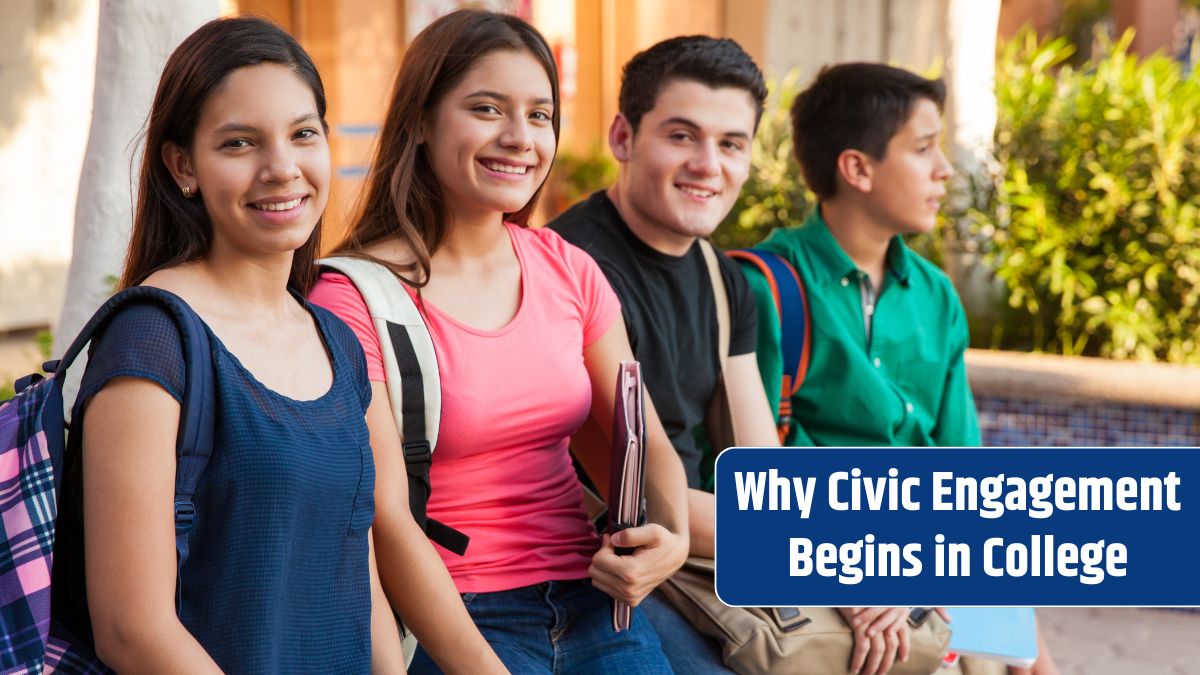College isn’t just about getting a degree—it’s where students start shaping who they are and how they’ll impact the world. That’s why civic engagement in college matters more than ever. From voting to volunteering, students need real-world opportunities to step into their role as citizens. Because let’s be honest: democracy doesn’t defend itself.
So, how exactly do colleges help build active citizens? Let’s break it down.
Table of Contents
Foundation
College is a launchpad. It’s often the first time students are on their own, making big decisions, exploring values, and figuring out how society works. That makes it the perfect time to introduce civic responsibility.
But civic learning isn’t just about memorizing the Constitution. It’s about understanding systems—how local government works, how to organize around issues, how to think critically and argue constructively. In short, it’s about preparing students to participate, not just spectate.
Opportunities
The good news? Many colleges are stepping up. They’re offering courses on public policy, democracy, and community engagement. Some even require service-learning or civic internships that tie academic credit to local impact.
Student governments, campus activism, and voter registration drives are also powerful tools. When schools actively support these initiatives, students get hands-on experience in shaping their communities.
Want to fight climate change? Advocate for equity? Influence policy? College is where you learn how.
Benefits
Civic engagement isn’t just good for democracy—it’s good for students. Research shows that students who participate in civic activities tend to have higher GPAs, stronger leadership skills, and more career readiness.
It also builds a sense of purpose. College can feel like a bubble, but getting involved in the real world reminds students that their voice matters. And that kind of confidence sticks long after graduation.
Here’s a quick snapshot of the benefits:
| Civic Engagement | Student Benefit |
|---|---|
| Volunteering | Builds empathy and networks |
| Policy projects | Improves research skills |
| Voting initiatives | Teaches rights and process |
| Public speaking | Strengthens communication |
| Campaign organizing | Boosts leadership experience |
Challenges
Still, civic engagement in college isn’t always easy. Some campuses don’t prioritize it. Others may face political pressure to stay “neutral,” especially in divided communities.
Then there’s the issue of accessibility. First-gen students or those balancing jobs may not have time for unpaid civic work. That’s why it’s critical for colleges to make civic opportunities inclusive, flexible, and built into coursework—not just add-ons.
Future
Looking ahead, colleges need to treat civic education as essential—not optional. That means more funding for civic programs, more support for student-led initiatives, and more partnerships with local organizations.
Technology can help too. Virtual town halls, digital advocacy, and online organizing are expanding the ways students can engage, even if they’re commuting or learning remotely.
When colleges commit to building better citizens, they’re not just shaping individuals—they’re strengthening society. And honestly, there’s no better time to start than now.
FAQs
What is civic engagement in college?
It’s student involvement in community and public life.
Why start civic learning in college?
College shapes lifelong habits and values early on.
How can students get involved?
Through clubs, service-learning, voting, and advocacy.
Does it help with careers?
Yes, it boosts skills like leadership and communication.
What are common challenges?
Limited access, time, and institutional support.























